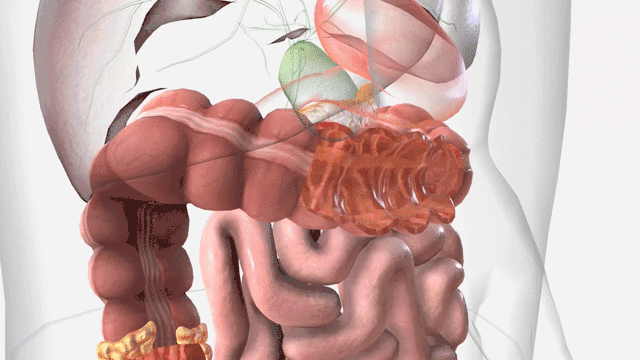
As we age, maintaining optimal health becomes a priority, and one often overlooked aspect is gut health. The trillions of microorganisms residing in our digestive system play a crucial role in overall well-being. In recent years, probiotics have gained significant attention for their potential to support a healthy gut, and their benefits for the elderly are particularly noteworthy. In this blog, we will explore why probiotics are essential for the well-being of elderly individuals, examining their impact on digestive health, immunity, and overall longevity.
Understanding Probiotics:
Probiotics are live microorganisms, primarily bacteria and yeast, that confer health benefits to the host when consumed in adequate amounts. Found in various fermented foods like yogurt, kefir, sauerkraut, and in supplement form, probiotics are known to promote a balanced microbial environment in the gut. The gut microbiota, often referred to as the “forgotten organ,” plays a crucial role in nutrient absorption, immune function, and even mental health.
Digestive Health and Probiotics:
As individuals age, changes in the gut microbiota composition occur, leading to a decline in beneficial bacteria and an increase in harmful ones. This imbalance can contribute to digestive issues such as constipation, bloating, and a decreased ability to absorb nutrients from food. Probiotics work by restoring this balance, promoting the growth of beneficial bacteria and inhibiting the harmful ones. Several studies have indicated that regular consumption of probiotics can alleviate common digestive problems in the elderly, enhancing overall gastrointestinal function.
Boosting Immunity:
One of the key advantages of probiotics for the elderly lies in their ability to support a robust immune system. As we age, the immune system tends to weaken, making individuals more susceptible to infections and illnesses. Probiotics play a pivotal role in modulating the immune response, promoting the production of antibodies and enhancing the activity of immune cells. Research suggests that incorporating probiotics into the diet can reduce the incidence and duration of respiratory infections and other common illnesses among the elderly.
Improving Nutrient Absorption:
In elderly individuals, issues with nutrient absorption can lead to deficiencies in essential vitamins and minerals, contributing to a range of health problems. Probiotics aid in the breakdown of complex molecules, facilitating the absorption of nutrients in the gut. This is particularly crucial for the elderly, as it can help mitigate the risk of malnutrition and associated complications.
Cognitive Health and Probiotics:
Recent studies have also explored the connection between gut health and cognitive function. The gut-brain axis, a bidirectional communication system between the gut and the brain, is influenced by the microbiota. Probiotics may have a positive impact on cognitive health by modulating inflammation and producing neuroactive compounds. While more research is needed to fully understand this complex relationship, the potential implications for preventing cognitive decline in the elderly are promising.
In conclusion, the incorporation of probiotics into the daily routine of elderly individuals can be a game-changer for their overall health and well-being. From supporting digestive health and enhancing nutrient absorption to bolstering the immune system and potentially influencing cognitive function, the benefits of probiotics are multifaceted. As the scientific community continues to unravel the mysteries of the gut microbiota, it’s clear that promoting a healthy balance of microorganisms through probiotics is a simple yet powerful strategy for promoting a vibrant and fulfilling life in our golden years.
References:
- Gibson, G. R., Hutkins, R., Sanders, M. E., Prescott, S. L., Reimer, R. A., Salminen, S. J., … & Reid, G. (2017). Expert consensus document: The International Scientific Association for Probiotics and Prebiotics (ISAPP) consensus statement on the definition and scope of prebiotics. Nature Reviews Gastroenterology & Hepatology, 14(8), 491-502.
- Hill, C., Guarner, F., Reid, G., Gibson, G. R., Merenstein, D. J., Pot, B., … & Sanders, M. E. (2014). Expert consensus document: The International Scientific Association for Probiotics and Prebiotics consensus statement on the scope and appropriate use of the term probiotic. Nature Reviews Gastroenterology & Hepatology, 11(8), 506-514.
- Maldonado-Gómez, M. X., Martínez, I., Bottacini, F., O’Callaghan, A., Ventura, M., van Sinderen, D., … & Mills, D. A. (2016). Stable engraftment of Bifidobacterium longum AH1206 in the human gut depends on individualized features of the resident microbiome. Cell Host & Microbe, 20(4), 515-526.
- Vemuri, R., Sylvia, K. E., Klein, S. L., Forster, S. C., Plebanski, M., Eri, R., & Flanagan, K. L. (2019). The microgenderome revealed: sex differences in bidirectional interactions between the microbiota, hormones, immunity and disease susceptibility. Seminars in Immunopathology, 41(2), 265-275.

